13 Health Benefits of Passion Fruit: What You Need To Know
From regulating blood pressure to improving gut health, this flavorful fruit does it all.
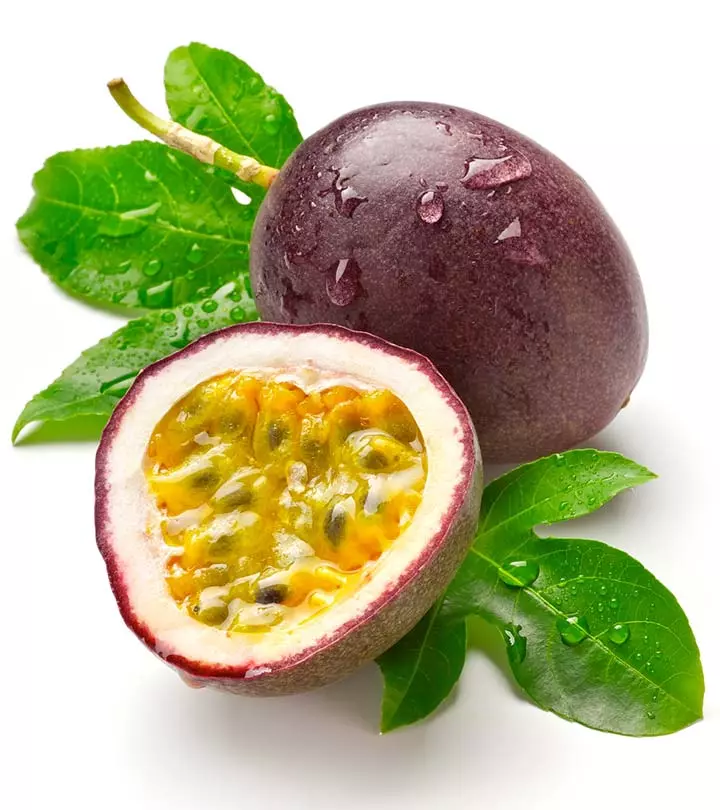
Image: iStock
Passion fruit benefits may entice you to add this exotic fruit to your diet. This grapefruit-like fruit has a purple hue and a tart yet delicious taste. Its pulpy is juicy and has firm meat and several seeds.
Recent studies have highlighted the fruit’s health benefits. It may help patients with diabetes. Passion fruit contains a lot of dietary fiberi The inedible portion of plant foods that pertains to numerous health advantages, such as relieving constipation and lowering cholesterol. , which helps you feel full and promotes gut health. It helps regulate blood pressure, and the antioxidantsi Chemicals, either man-made or natural, that combat free radicals in the human body and are widely found in fruits and vegetables. promote heart health.
This article discusses the benefits of passion fruit, its nutritional profile, and any poteMay Regulate Blood Pressure And Protect The Heartntial side effects. Take a look.
 Know Your Ingredient: Passion Fruit
Know Your Ingredient: Passion FruitWhat Is It?
A round, purple tropical fruit with yellow juice inside that has a sweet yet tangy flavor.
What Are Its Benefits?
It aids in digestive health, improves immunity, and reduces cancer risk.
Who Can Consume It?
Anyone can consume this fruit.
How Often?
You can eat one serving of this fruit daily.
Caution
Avoid consuming this fruit If you are pregnant, breastfeeding, going for surgery, or have a latex allergy.
In This Article
What Are The Benefits Of Passion Fruit?
1. May Aid Diabetes Treatment
The low glycemic index (GI) and the high fiber content of the fruit can make it beneficial for people with diabetes.
The fruit is also rich in pectin, a type of fiber that keeps you full without increasing your calorie intake (1), (2). Its high fiber content ensures the fruit’s sugar is slowly absorbed into the bloodstream. This prevents sugar crashes and cravings.
Studies show that passion fruit may be used as a dietary supplement for diabetes treatment due to its hypoglycemic potential (3). The fruit can also lower serum cholesterol levels and improve the functioning of insulin (decreases insulin resistance) (4).
2. May Regulate Blood Pressure And Protect The Heart

Passion fruit is also rich in potassium, an important mineral that regulates blood pressure levels (5). Potassium relaxes blood vessels and enhances blood flow. This reduces heart strain and improves overall heart health.
A rat study states that the extract of the passion fruit peel may be used as a remedy for hypertension. However, more research is needed to understand the effect of the peel extract on blood pressure control in humans (6). The piceatannol in passion fruit may help lower blood pressure levels (7).
3. May Help Reduce Cancer Risk
Passion fruit is replete with antioxidants that fight cancer-causing free radicals.
It also contains vitamin A, flavonoidsi A group of organic compounds that has antioxidant properties and is found in fruits, vegetables, and grains. , and other phenolic compounds. These may help in cancer prevention (8), (9). The passion flower (flower of the plant that bears passion fruit) contains chrysin, a compound that has shown anticancer activities (10). Piceatannol, another important compound in the fruit, was found to kill colorectal cancer cells (10).
The fruit also contains vitamin C. Vitamin C is a powerful antioxidant that can fight free radicals and may reduce cancer risk (11).
4. May Boost Immunity
Passion fruit contains vitamin C, carotene, and cryptoxanthin – these nutrients help boost the immune system
(12). Vitamin C also stimulates white blood cell activity. This results in a stronger immune system and protection from common ailments (13).
5. May Enhance Digestive Health
Passion fruit is an ideal addition to a digestive-friendly diet as it is a great source of fiber.
The fruit contains soluble fiber, both in its pulp and the rind which aids digestion. Dietary fiber acts as a laxative and improves bowel movement (14). The fiber also helps prevent constipation and reduces total cholesterol levels by excreting it through feces.
6. May Improve Skin Complexion

The fruit is a great source of vitamin A, a nutrient that is particularly beneficial for the skin. The other antioxidants in the fruit, like vitamin C, riboflavin, and carotene, also boost skin health, hydration and complexion and delay the signs of premature aging. Passion fruit is rich in piceatannol that may have an anti-aging effect (7).
However, concrete research in this area is limited. More studies on humans are needed.
7. May Improve Cognitive Health And Reduce Anxiety
The potassium and folate in passion fruit play a role here. While potassium enhances blood flow and cognition, the folate helps prevent Alzheimer’s and cognitive decline (15), (16).
Some sources state that passion flower may help reduce anxiety (17). The fruit contains antioxidants that fights inflammation. It may also have some relieving effect on anxiety (18).
8. May Strengthen Bones
Passion fruit is rich in minerals like magnesium, calcium, iron, and phosphorus. Hence, including the fruit in your diet is a good way to complement the effects of other bone-strengthening foods. These minerals, when taken along with other rich sources (like green veggies and milk), maintain bone density and may prevent osteoporosis (19).
Studies have shown that the passion fruit peel extract also has anti-inflammatory properties. These may help relieve osteoarthritis symptoms (20).
9. May Help Treat Respiratory Ailments

he novel mixture of bioflavonoids in passion fruit can have positive effects on the respiratory system. Studies show that the fruit extracts can help ease asthma, wheezing, and cough (21).
More information is needed to understand the therapeutic effects the fruit can have on respiratory conditions.
10. May Aid Sleep
The fruit contains harman, which may have sedative properties (22). Anecdotal evidence suggests that the fruit may help treat insomnia and restlessness. However, research is limited, and more information is needed.
 Trivia
Trivia11. May Improve Blood Circulation
Scirpusin B, a compound in passion fruit seeds, acts as a vasorelaxing substance (23). It relaxes the blood vessels, and this may promote blood circulation.
Also, the potassium in passion fruit may have vasodilation properties. The iron and copper in the fruit may further promote circulation as they are essential components involved in the production of red blood cells. However, this needs more research.
12. May Be Beneficial During Pregnancy
The folate in passion fruit helps in the growth and development of the fetus and prevents neural tube defects in infants. Folate is crucial before and during pregnancy, and during breastfeeding, its need further increases (24). As already seen, the fruit may also boost immunity and bone health during this period.
13. May Aid Weight Loss

The fiber in the fruit may keep you fuller for longer periods. Further, a good content of essential nutrients and electrolytes keeps your energy levels boosted without messing with your diet plans. However, there is no direct research stating that passion fruit can aid weight loss. You can include it as a part of your weight loss diet.
14. May Improve Eye Health
Being a rich source of vitamins A and C, consumption of passion fruits may improve your vision and prevent the progression of myopia. However, the claim is based on anecdotal evidence.
Passion fruit is replete with essential nutrients and other antioxidants. In the following section, we will explore its detailed nutrition profile.
Key Takeaways
- Consuming passion fruit may improve cognitive health, reduce stress and anxiety, and help in bone health.
- It may also stimulate circulation and promote wound healing.
- Passion fruit can be added to your salads, drinks, and desserts.
- One should also consume passion fruit cautiously during pregnancy and stop consuming it at least two weeks before a scheduled surgery.
What Is The Nutritional Profile Of Passion Fruit?
| PRINCIPLE | NUTRIENT VALUE | PERCENTAGE OF RDA |
|---|---|---|
| Energy | 97 Kcal | 5.00% |
| Carbohydrates | 23.38 g | 18.00% |
| Protein | 2.20 g | 4.00% |
| Total Fat | 0.70 g | 3.00% |
| Cholesterol | 0 mg | 0.00% |
| Dietary Fiber | 10.40 g | 27.00% |
| VITAMINS | ||
| Folates | 14 µg | 3.00% |
| Niacin | 1.500 mg | 9.00% |
| Pyridoxine | 0.100 mg | 8.00% |
| Riboflavin | 0.130 mg | 10.00% |
| Thiamin | 0.00 mg | 0.00% |
| Vitamin A | 1274 IU | 43.00% |
| Vitamin C | 30 mg | 50.00% |
| Vitamin E | 0.02 µg | |
| Vitamin K | 0.7 mg | 0.50% |
| ELECTROLYTES | ||
| Sodium | 0 mg | 0.00% |
| Potassium | 348 mg | 7.00% |
| MINERALS | ||
| Calcium | 12 mg | 1.20% |
| Copper | 0.086 mg | 9.50% |
| Iron | 1.60 mg | 20.00% |
| Magnesium | 29 mg | 7.00% |
| Phosphorus | 68 mg | 10.00% |
| Selenium | 0.6 µg | 1.00% |
| Zinc | 0.10 µg | 1.00% |
| PHYTO-NUTRIENTS | ||
| Carotene-ß | 743 µg | — |
| Crypto-xanthin-ß | 41 µg | — |
| Lycopene | 0 µg | — |
*Values sourced from USDA, passion-fruit, purple, raw
Passion fruit is not eaten the usual way. In the following section we have briefed on the process and the various ways you can include it in your diet.
How To Eat A Passion Fruit
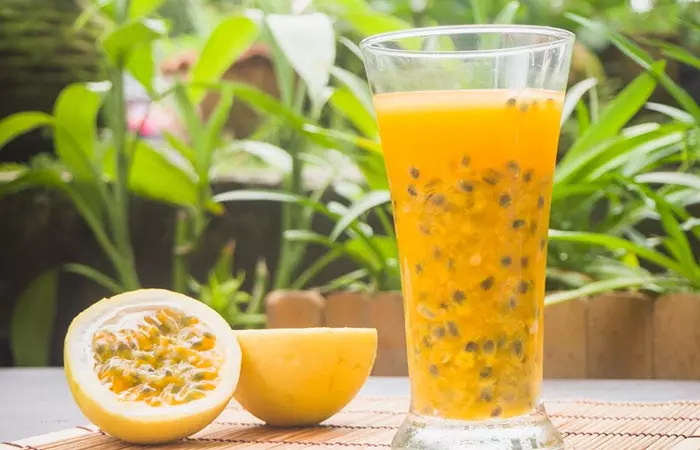
Cut the fruit in half with a sharp knife. Scoop out the insides (along with the seeds) with a spoon and eat the fruit along with seeds. The membrane that separates the seeds from the peel can be tart. You can sprinkle some sugar on it and eat it.
Passion fruit can be used in other ways as well. You can mix it with yogurt, add to salad dressings, and also use as a topping in desserts and drinks. Scroll down to learn some easy recipes for passion fruit.
 Quick Tip
Quick TipPopular Recipes Using Passion Fruit
1. Passion Fruit Smoothie
What You Need
- ½ cup frozen passion fruit puree (or the pulp from 2 passion fruits)
- 1-2 cups coconut water
- 1 serving of plain protein powder
- ¼ cup frozen pineapple chunks
- 1 frozen banana
- ¼ frozen mango chunks
Process
- Add everything to a blender and blend until smooth.
- Add more coconut water if needed to reach the desired consistency.
- Serve immediately in a glass or a bowl topped with berries, nuts, or seeds.
2. Passion Fruit Salad Dressing
What You Need
- 2 passion fruits (or ¼ cup passion fruit puree)
- ½ cup olive oil
- 2 tablespoons honey
- 1 tablespoon vinegar
- 1 tablespoon lime juice
- ¼ teaspoon salt
Process
- Cut the passion fruits in half. Take a small saucepan and scrape in the pulp and seeds.
- Heat the pulp almost to boiling on medium-low heat. Then remove it from the flame.
- Strain the pulp through a fine sieve.
- Discard the seeds and let the juice cool.
- Put the passion fruit juice, olive oil, lime juice, vinegar, honey, and salt in a blender and blend until the mixture is smooth.
- Store the salad dressing in the refrigerator for up to one week and use as needed.
Do keep in mind not to eat the skin of the fruit. It may contain a small amount of cyanogenic glycosides (sources of cyanide) that may cause potential harm (25). The fruit may also cause some harm to certain individuals. We have discussed the potential side effects of the fruit in the following section.
What Are The Side Effects Of Passion Fruit?
Passion fruit is generally safe for most people, but some may experience allergies. Always consult your doctor if you experience any adverse effects after consuming this fruit.
- May Cause Latex-Fruit Syndrome
People with latex allergy could be more sensitive to passion fruit and may experience allergic symptoms (26). Hence, such individuals should avoid consuming passion fruit.
- May Cause Issues During Pregnancy And Breastfeeding
Though passion fruit can be beneficial during pregnancy, studies state that passionflower may induce contractions and must not be taken during this period (27). Though there is no evidence that the fruit may also cause similar effects, it is important to exercise caution. Consult your doctor before taking this fruit during pregnancy or breastfeeding.
- May Cause Issues During Surgery
Since the fruit can stimulate the central nervous system, it may interfere with anesthesia during surgery. Stop consuming it at least two weeks before a scheduled surgery. Research is limited in this area. Hence, consult your doctor.
 Trivia
TriviaInfographic: The Top Benefits of Passion Fruit
Passion fruit is a high-nutritional-value tropical fruit. Despite its diminutive size, it is a rich source of antioxidants and includes a variety of vitamins and plant components that may be good for your health.
Check out the infographic below to learn about the top benefits of this wonderful fruit and why you should incorporate it into your diet.
Some thing wrong with infographic shortcode. please verify shortcode syntax
Passion fruit is a fiber-rich fruit with antioxidative properties. Along with being beneficial for your heart and digestive health, passion fruit helps keep your blood sugar and blood pressure levels in check as well. Enriched with flavonoids, carotenesi Photosynthetic pigments that are responsible for the orange hue in plants and are essential for their growth. , and vitamin C, passion fruit benefits your cognitive health and helps reduce stress and anxiety as well. Scooping out the pulp and adding it to yogurt, salad dressings, desserts, and toppings is the best way to relish passion fruit.
Frequently Asked Questions
What are the most popular passion fruit varieties in the world?
The most popular varieties of this fruit include the yellow passion fruit, the purple passion fruit, the sweet passion fruit, and the banana passion fruit.
How do you know when a passion fruit is ready to eat?
The yellow variety will be deeply golden while the purple variety will be almost black. The fruits must be slightly wrinkled, indicating they are ripe.
How long does a passion fruit take to grow?
If planted in early spring, the fruit takes 6 months to grow. If planted in autumn, the fruit can take 12 months to grow.
What is the passion fruit called in other languages?
Passion fruit is called junoon ka phal in Hindi, maracuya in Spanish, maracuja in Portuguese, and fruit de la passion in French.
Is passion fruit in season?
Yes. As it is a tropical fruit, it is available all round the year, though it is primarily available in the summers.
Can passion fruit be eaten daily?
Yes. Passion fruit can be eaten daily. The fiber in this fruit can help improve digestive health and benefit your health in many other ways.
Is passion fruit full of sugar?
According to the USDA, 100 grams of passion fruit contains 11.2 grams of sugar (28).
Is passion fruit good for your liver?
Yes. Passion fruit extract has been found to have protective effects against alcoholic liver disease (29).
Is passion fruit good for the brain?
Yes. Passion fruit seed extract exhibits neuroprotective properties that help improve brain function (30).
Does passion fruit help hair growth?
Anecdotal evidence suggests that the presence of antioxidants in passion fruit aids healthy hair growth.
Is passion fruit good to eat raw?
Yes. You can eat raw passion fruit, which is good for your health.
Is passion fruit a superfood?
Yes. Passion fruit is considered a superfood due to the presence of iron that helps your body absorb vitamin C.
Illustration: Proven Health Benefits Of Passion Fruit + Nutrition Facts
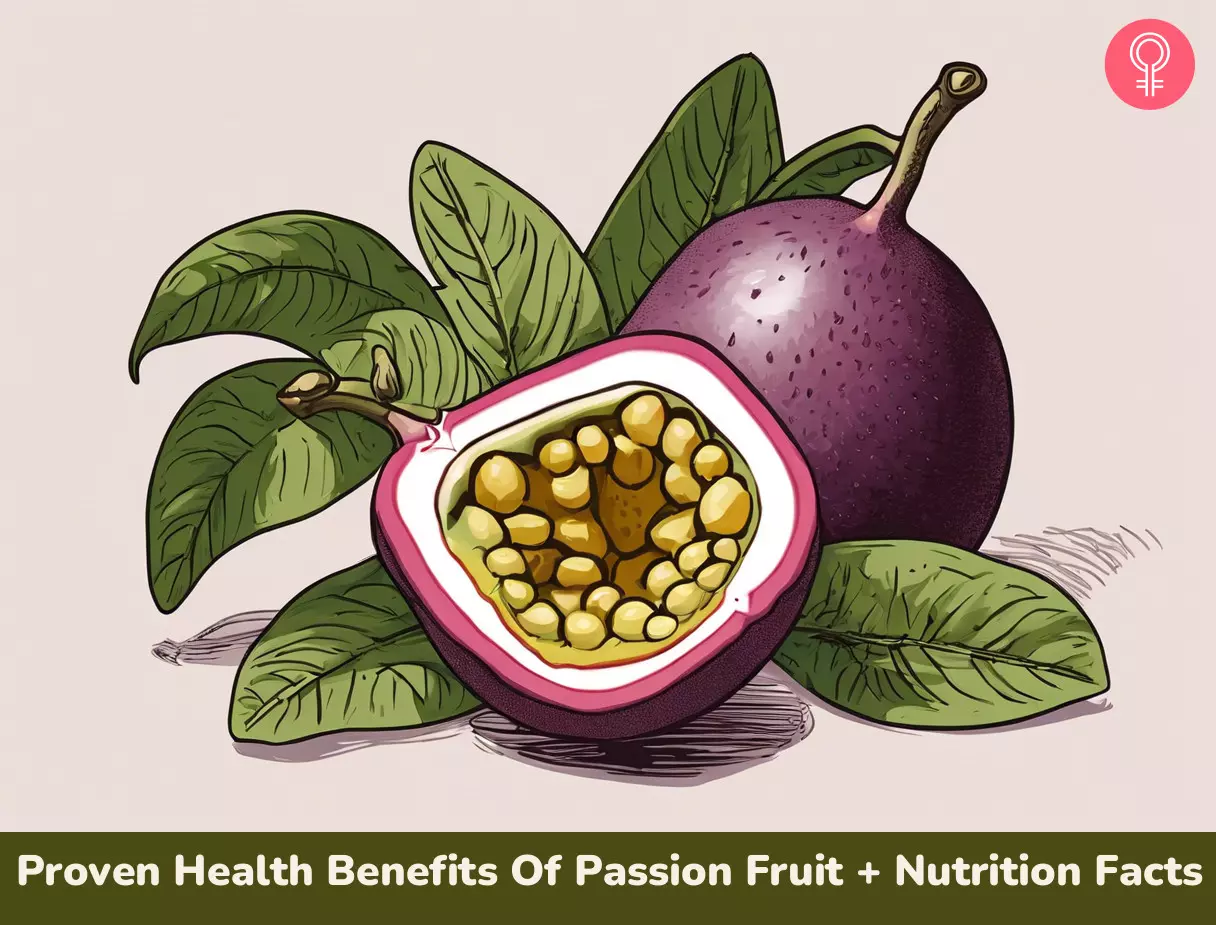
Image: Stable Diffusion/StyleCraze Design Team
References
Articles on StyleCraze are backed by verified information from peer-reviewed and academic research papers, reputed organizations, research institutions, and medical associations to ensure accuracy and relevance. Read our editorial policy to learn more.
- Dos Reis, Luzia Caroline Ramos et al. “Antioxidant potential and physicochemical characterization of yellow, purple and orange passion fruit.” Journal of food science and technology vol. 55,7 (2018): 2679-2691.
https://www.ncbi.nlm.nih.gov/pmc/articles/PMC6033812/ - Brennan, Charles S. “Dietary fibre, glycaemic response, and diabetes.” Molecular nutrition & food research vol. 49,6 (2005): 560-70.
https://pubmed.ncbi.nlm.nih.gov/15926145/ - Corrêa, E M et al. “THE INTAKE OF FIBER MESOCARP PASSIONFRUIT (PASSIFLORA EDULIS) LOWERS LEVELS OF TRIGLYCERIDE AND CHOLESTEROL DECREASING PRINCIPALLY INSULIN AND LEPTIN.” The journal of aging research & clinical practice vol. 3,1 (2014): 31-35.
https://pubmed.ncbi.nlm.nih.gov/25346913/ - de Queiroz, Maria do Socoro Ramos et al. “Effect of the yellow passion fruit peel flour (Passiflora edulis f. flavicarpa deg.) in insulin sensitivity in type 2 diabetes mellitus patients.” Nutrition journal vol. 11 89. 22 Oct. 2012.
https://www.ncbi.nlm.nih.gov/pmc/articles/PMC3507806/ - Prasertsri, Piyapong et al. “Acute Effects of Passion Fruit Juice Supplementation on Cardiac Autonomic Function and Blood Glucose in Healthy Subjects.” Preventive nutrition and food science vol. 24,3 (2019): 245-253.
https://www.ncbi.nlm.nih.gov/pmc/articles/PMC6779082/ - Lewis, Brandon J et al. “Antihypertensive effect of passion fruit peel extract and its major bioactive components following acute supplementation in spontaneously hypertensive rats.” The Journal of nutritional biochemistry vol. 24,7 (2013): 1359-66.
https://pubmed.ncbi.nlm.nih.gov/23333089/ - Kitada, Munehiro et al. “The Effect of Piceatannol from Passion Fruit (Passiflora edulis) Seeds on Metabolic Health in Humans.” Nutrients vol. 9,10 1142. 18 Oct. 2017.
https://www.ncbi.nlm.nih.gov/pmc/articles/PMC5691758/ - Batra, Priya, and Anil K Sharma. “Anti-cancer potential of flavonoids: recent trends and future perspectives.” 3 Biotech vol. 3,6 (2013): 439-459.
https://www.ncbi.nlm.nih.gov/pmc/articles/PMC3824783/ - Doldo, Elena et al. “Vitamin A, cancer treatment and prevention: the new role of cellular retinol binding proteins.” BioMed research international vol. 2015 (2015): 624627.
https://www.ncbi.nlm.nih.gov/pmc/articles/PMC4387950/ - Zhou, Yue et al. “Natural Polyphenols for Prevention and Treatment of Cancer.” Nutrients vol. 8,8 515. 22 Aug. 2016.
https://www.ncbi.nlm.nih.gov/pmc/articles/PMC4997428/ - Lobo, V et al. “Free radicals, antioxidants and functional foods: Impact on human health.” Pharmacognosy reviews vol. 4,8 (2010): 118-26.
https://www.ncbi.nlm.nih.gov/pmc/articles/PMC3249911/ - Pertuzatti, Paula Becker, et al. “Carotenoids, Tocopherols and Ascorbic Acid Content in Yellow Passion Fruit (Passiflora Edulis) Grown under Different Cultivation Systems.” LWT – Food Science and Technology, Academic Press.
www.sciencedirect.com/science/article/pii/S0023643815003801 - van Gorkom, Gwendolyn N Y et al. “Influence of Vitamin C on Lymphocytes: An Overview.” Antioxidants (Basel, Switzerland) vol. 7,3 41. 10 Mar. 2018.
https://pubmed.ncbi.nlm.nih.gov/29534432/ - Slavin, Joanne. “Fiber and prebiotics: mechanisms and health benefits.” Nutrients vol. 5,4 1417-35. 22 Apr. 2013.
https://pubmed.ncbi.nlm.nih.gov/23609775/ - Vintimilla, Raul M et al. “The Link between Potassium and Mild Cognitive Impairment in Mexican-Americans.” Dementia and geriatric cognitive disorders extra vol. 8,1 151-157. 24 Apr. 2018.
https://www.ncbi.nlm.nih.gov/pmc/articles/PMC5968281/ - Ma, Fei et al. “Folic acid supplementation improves cognitive function by reducing the levels of peripheral inflammatory cytokines in elderly Chinese subjects with MCI.” Scientific reports vol. 6 37486. 23 Nov. 2016.
https://www.ncbi.nlm.nih.gov/pmc/articles/PMC5120319/ - Akhondzadeh, S et al. “Passionflower in the treatment of generalized anxiety: a pilot double-blind randomized controlled trial with oxazepam.” Journal of clinical pharmacy and therapeutics vol. 26,5 (2001): 363-7.
https://pubmed.ncbi.nlm.nih.gov/11679026/ - Kim, Mijin et al. “Role Identification of Passiflora Incarnata Linnaeus: A Mini Review.” Journal of menopausal medicine vol. 23,3 (2017): 156-159.
https://www.ncbi.nlm.nih.gov/pmc/articles/PMC5770524/ - Higgs, Jennette et al. “Nutrition and osteoporosis prevention for the orthopaedic surgeon: A wholefoods approach.” EFORT open reviews vol. 2,6 300-308. 23 Jun. 2017.
https://www.ncbi.nlm.nih.gov/pmc/articles/PMC5508855/ - Cordova, F.M., et al. “Antioxidant and Anti-Inflammatory Actions of Passion Fruit Peel Extract in Modifying Osteoarthritis, Hypertension, and Asthma.” Bioactive Food as Dietary Interventions for Arthritis and Related Inflammatory Diseases, Academic Press, 26 Oct. 2012.
https://www.sciencedirect.com/science/article/abs/pii/B9780123971562002556 - Watson, Ronald Ross et al. “Oral administration of the purple passion fruit peel extract reduces wheeze and cough and improves shortness of breath in adults with asthma.” Nutrition research (New York, N.Y.) vol. 28,3 (2008): 166-71.
https://pubmed.ncbi.nlm.nih.gov/19083404/ - Abreu, Emanuel F M, and Francisco J L Aragão. “Isolation and characterization of a myo-inositol-1-phosphate synthase gene from yellow passion fruit (Passiflora edulis f. flavicarpa) expressed during seed development and environmental stress.” Annals of botany vol. 99,2 (2007): 285-92.
https://www.ncbi.nlm.nih.gov/pmc/articles/PMC2802995/ - Sano, Shoko et al. “Identification of the strong vasorelaxing substance scirpusin B, a dimer of piceatannol, from passion fruit (Passiflora edulis) seeds.” Journal of agricultural and food chemistry vol. 59,11 (2011): 6209-13.
https://pubmed.ncbi.nlm.nih.gov/21526844/ - Striegel, Lisa et al. “Promising Tropical Fruits High in Folates.” Foods (Basel, Switzerland) vol. 8,9 363. 26 Aug. 2019.
https://www.ncbi.nlm.nih.gov/pmc/articles/PMC6770070/ - Cressey, Peter et al. “Cyanogenic glycosides in plant-based foods available in New Zealand.” Food additives & contaminants. Part A, Chemistry, analysis, control, exposure & risk assessment vol. 30,11 (2013): 1946-53.
https://pubmed.ncbi.nlm.nih.gov/23984870/ - Brehler, R et al. “”Latex-fruit syndrome”: frequency of cross-reacting IgE antibodies.” Allergy vol. 52,4 (1997): 404-10.
https://pubmed.ncbi.nlm.nih.gov/9188921/ - “Passionflower.” National Center for Complementary and Integrative Health, U.S. Department of Health and Human Services, 24 Sept. 2017
https://www.nccih.nih.gov/health/passionflower - US Department of Agriculture. Passion-fruit, (granadilla), purple, raw. FoodData Central.
https://fdc.nal.usda.gov/fdc-app.html#/food-details/169108/nutrients - Kawakami, S., Morinaga, M., Tsukamoto-Sen, S., Mori, S., Matsui, Y., & Kawama, T. (2025). Constituent Characteristics and Functional Properties of Passion Fruit Seed Extract. Life, 12(1), 38.
https://www.ncbi.nlm.nih.gov/pmc/articles/PMC8781723/ - Sato, A., Tagai, N., Ogino, Y., Uozumi, H., Kawakami, S., Yamamoto, T., … & Morita, M. (2025). Passion fruit seed extract protects beta‐amyloid‐induced neuronal cell death in a differentiated human neuroblastoma SH‐SY5Y cell model. Food Science & Nutrition.
https://www.ncbi.nlm.nih.gov/pmc/articles/PMC9094456/
Read full bio of Lauren Smith
Read full bio of Sindhu Koganti
Read full bio of Ravi Teja Tadimalla
Read full bio of Moksha Gandhi





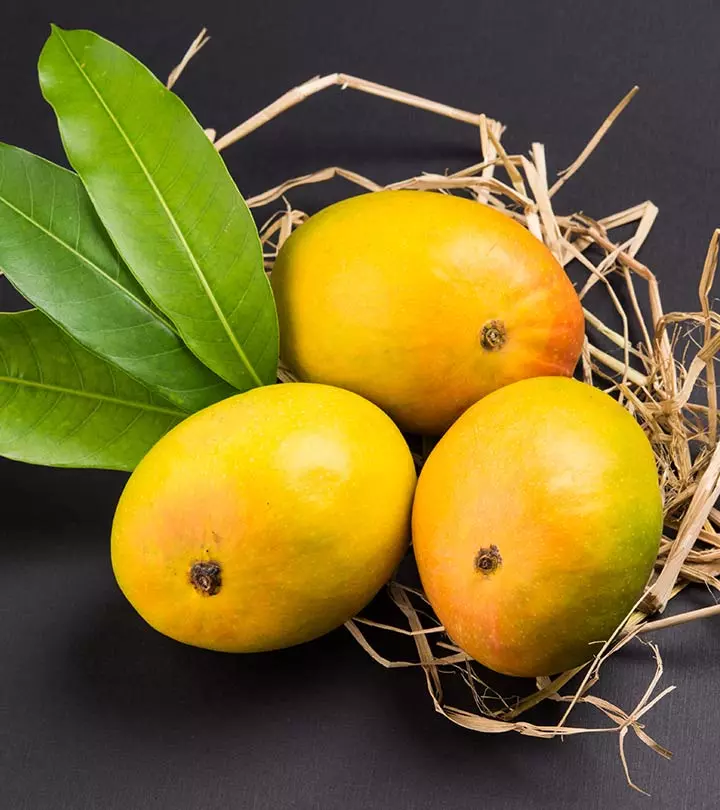
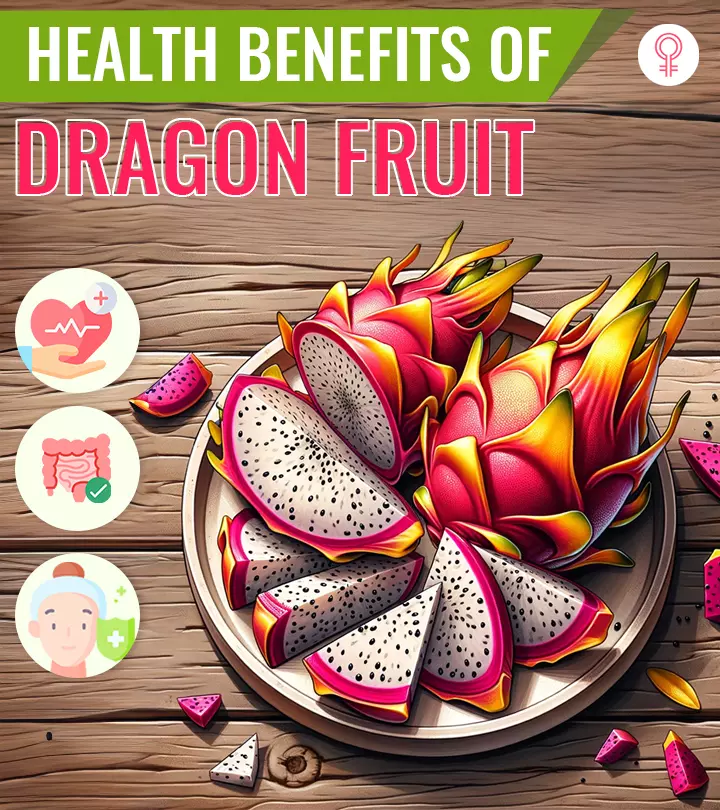
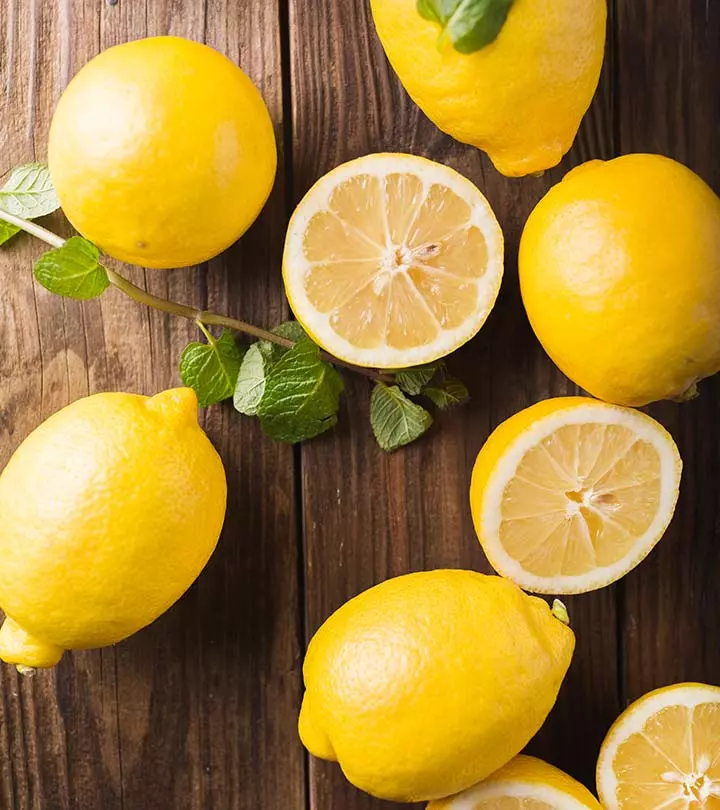
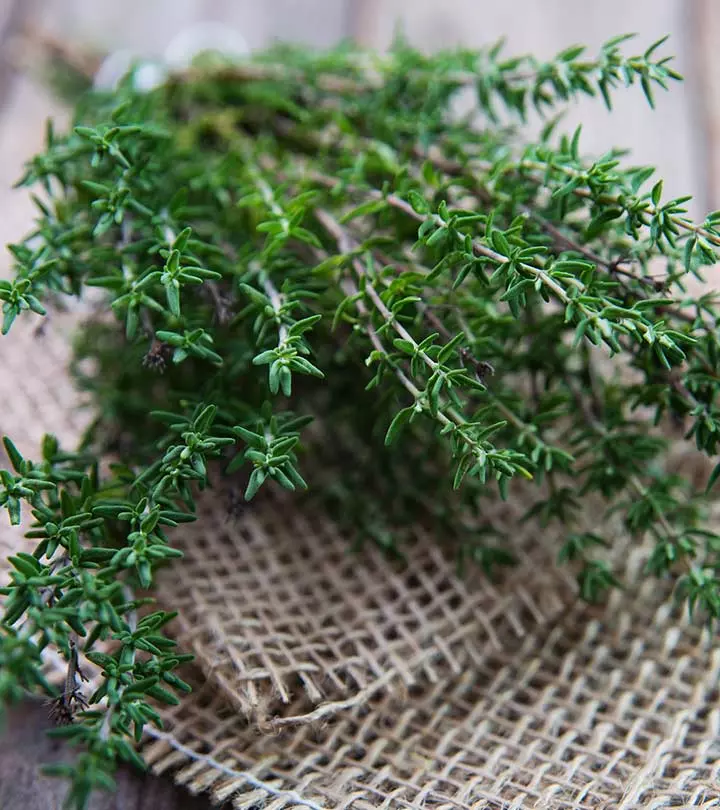
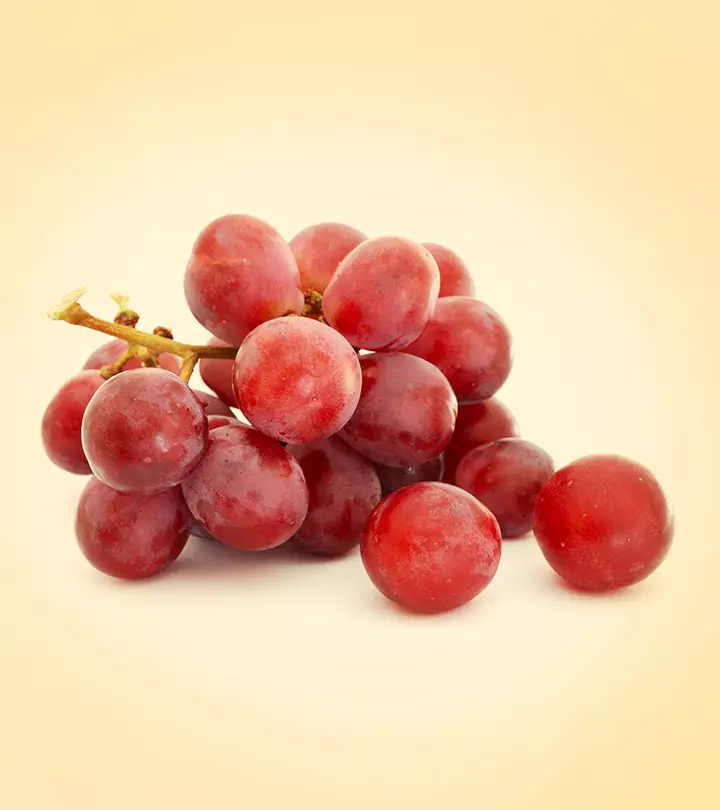
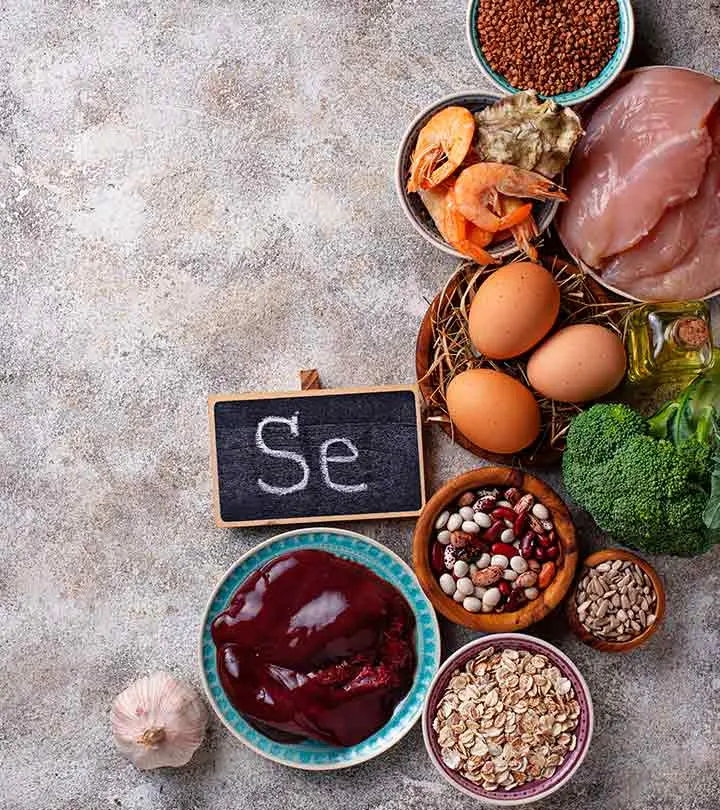

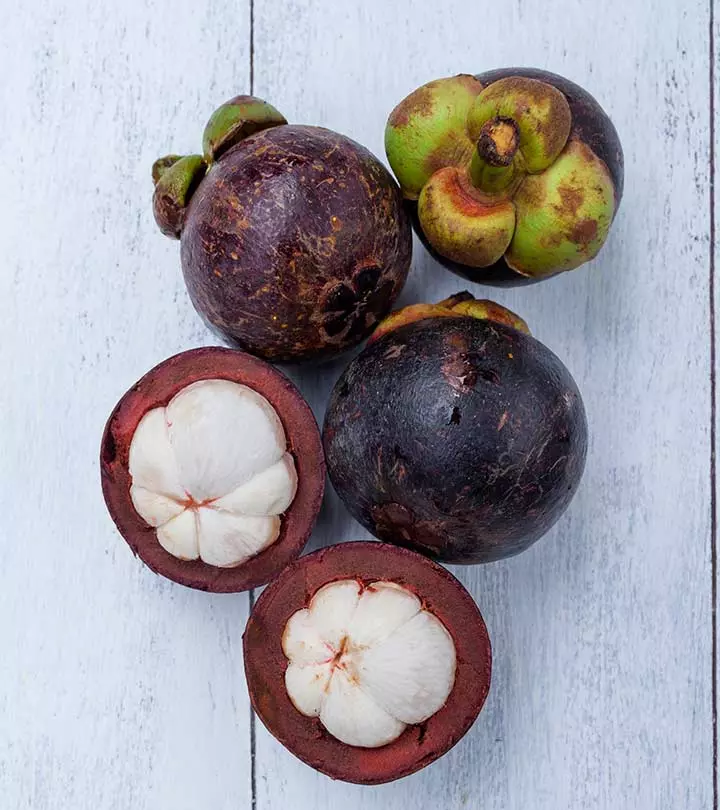

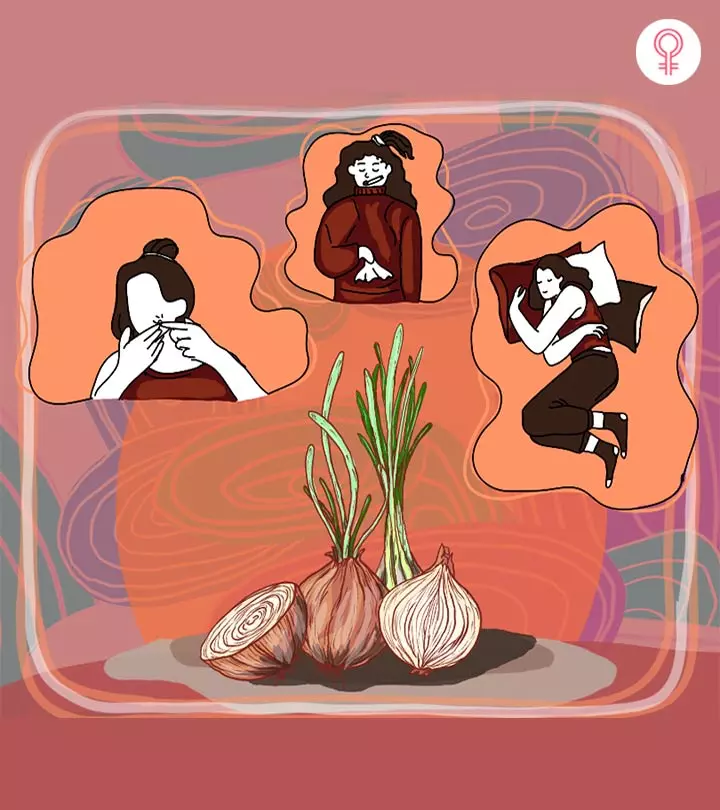
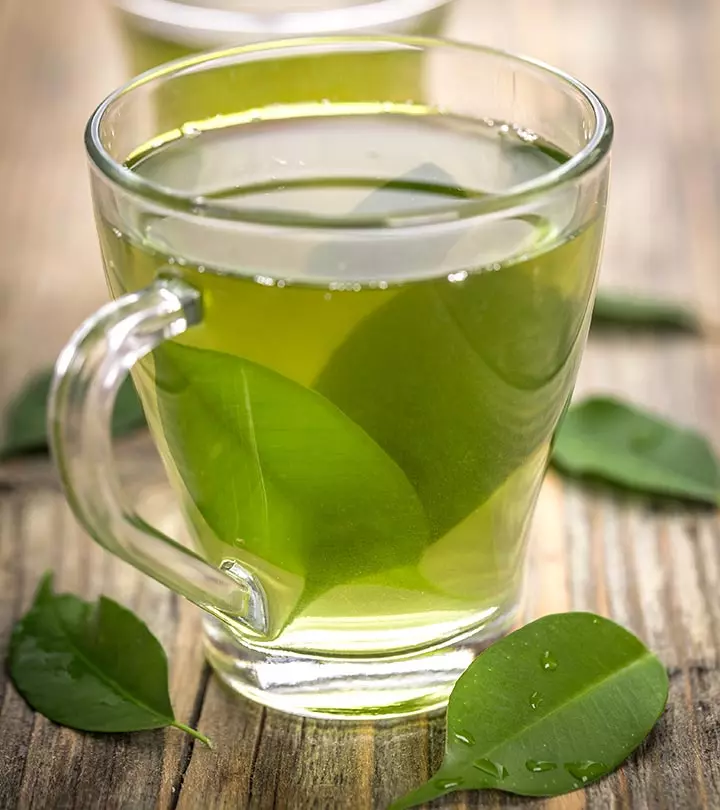
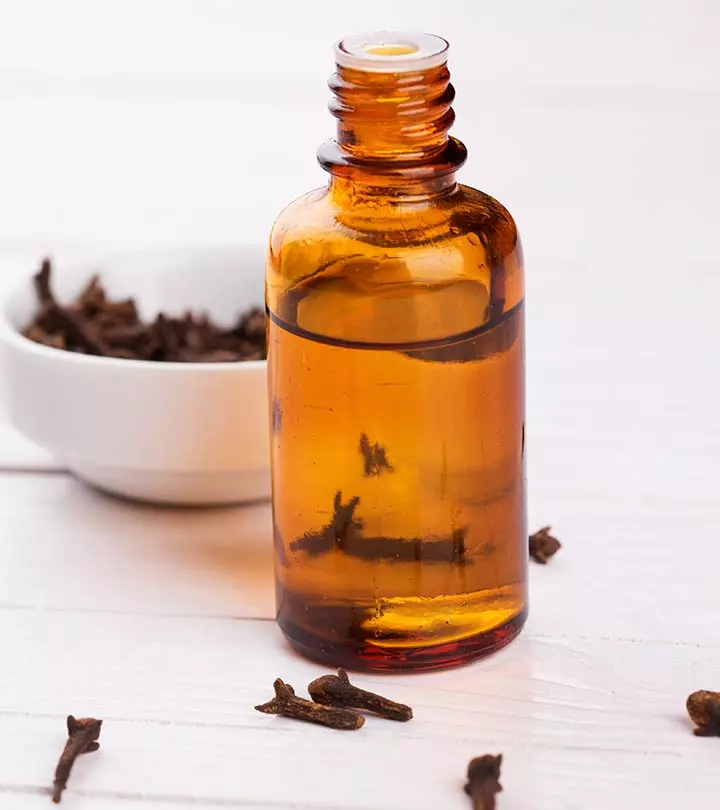

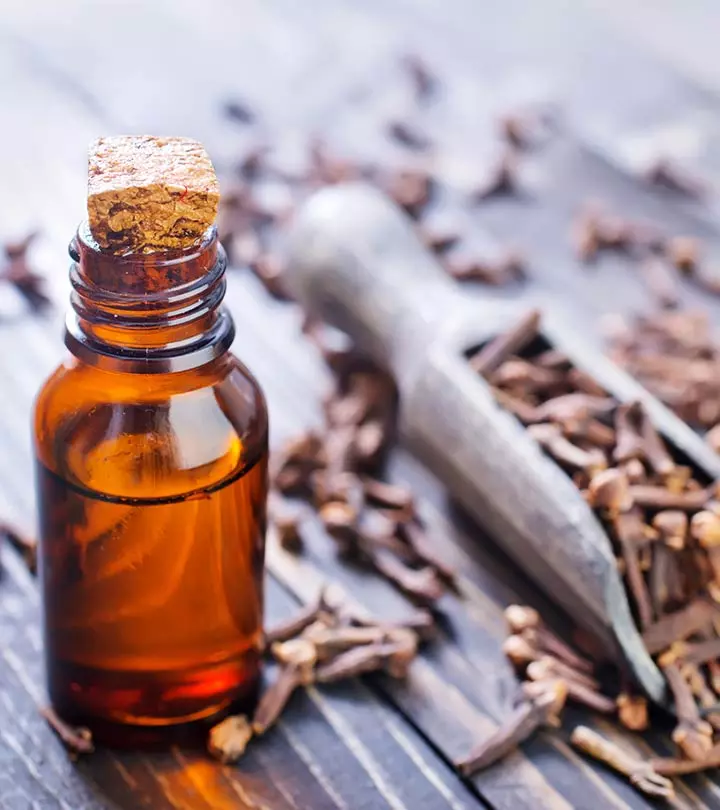
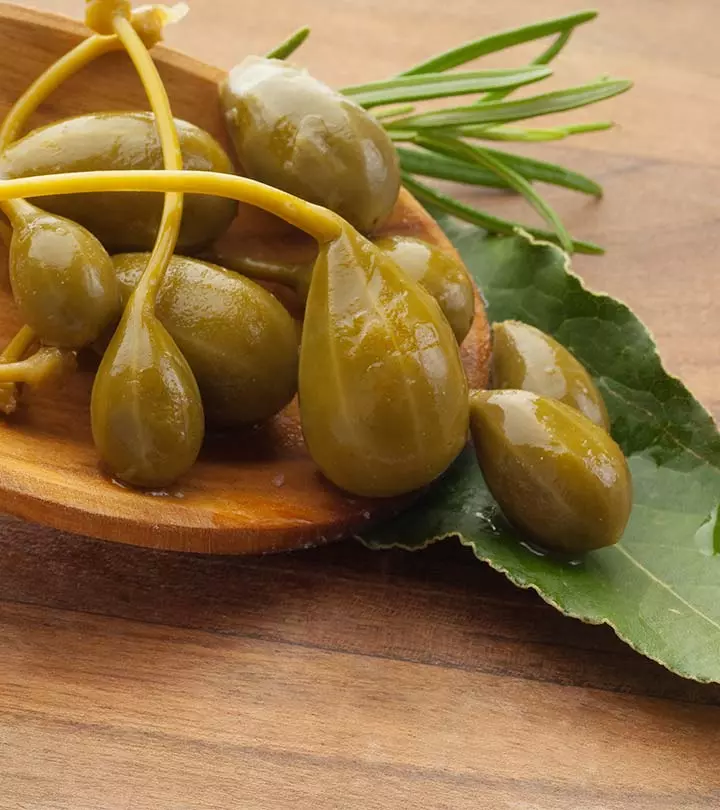
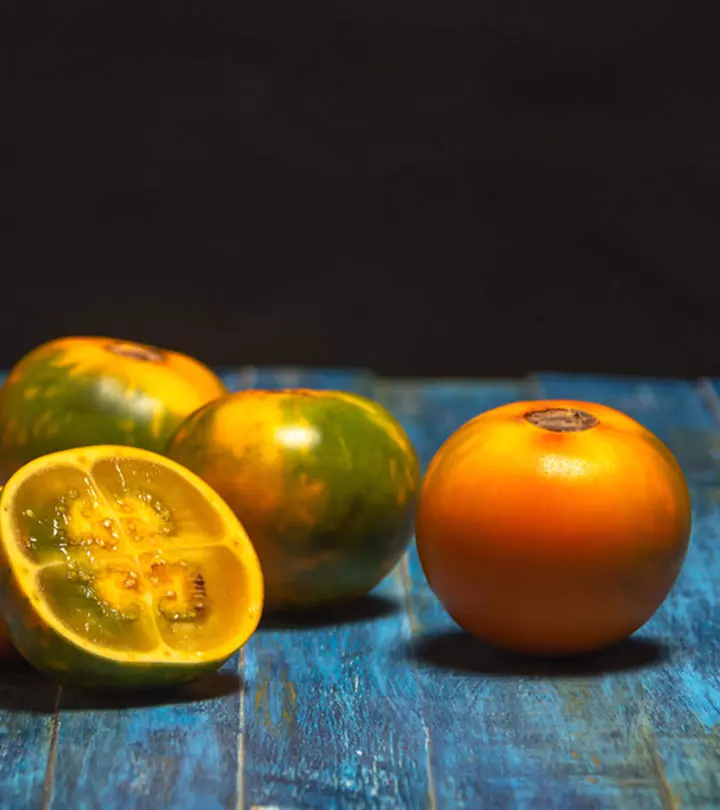


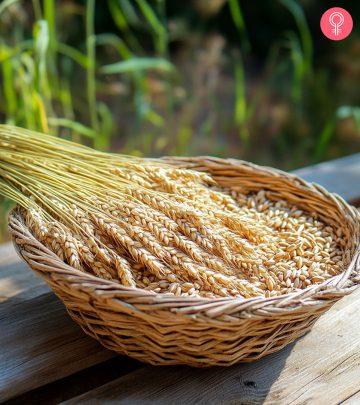

Community Experiences
Join the conversation and become a part of our empowering community! Share your stories, experiences, and insights to connect with other beauty, lifestyle, and health enthusiasts.